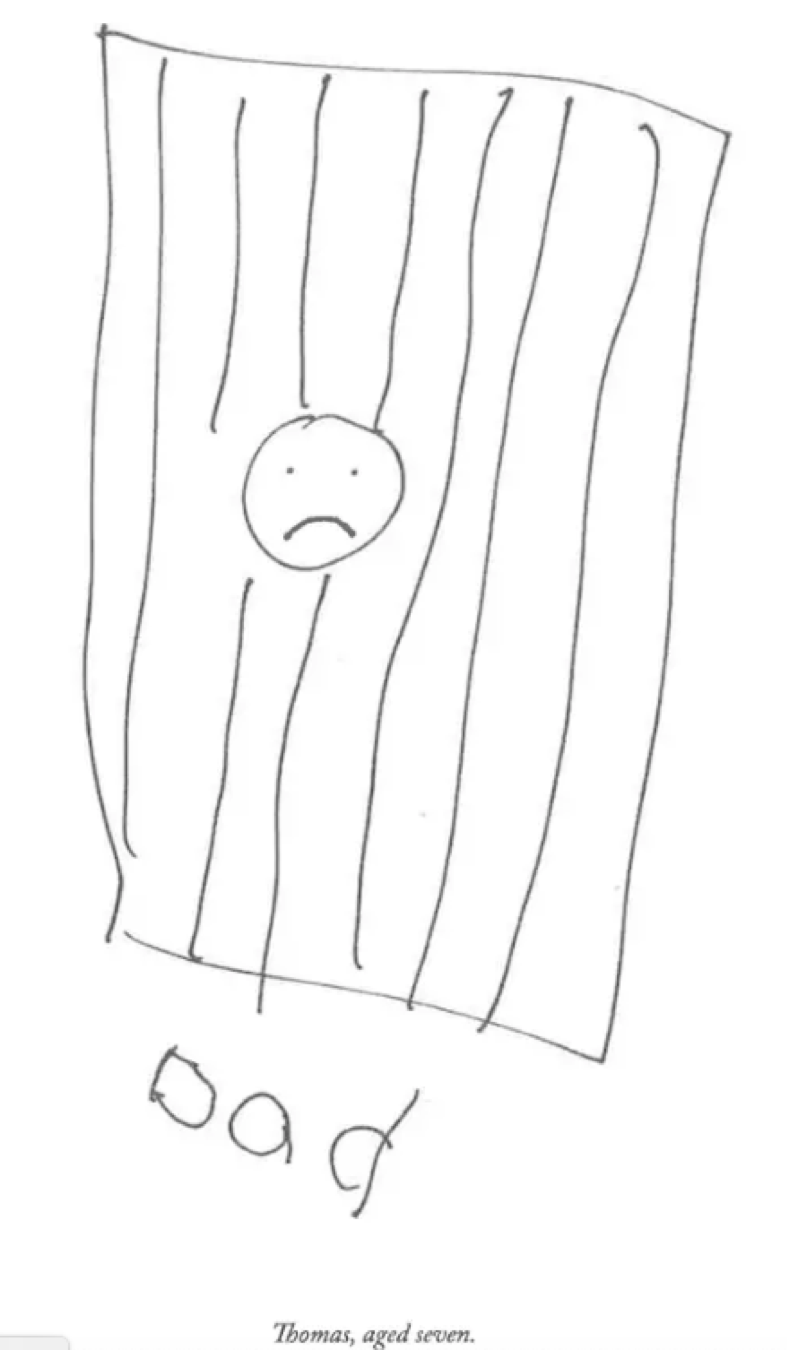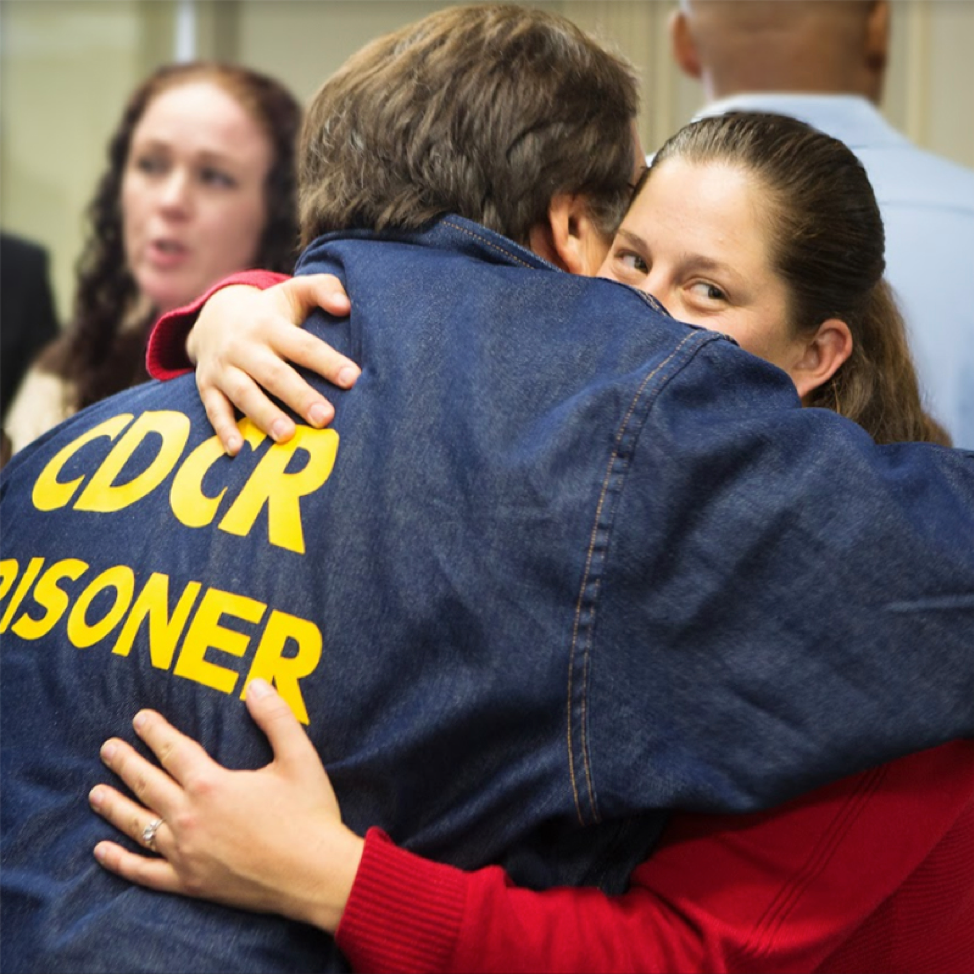|
NEW YORK STATE LITERARY CENTER'S Incarcerated Education Program
2018 - 2019
NYSLC's experience in its twelve years of providing education programs for those incarcerated through its Incarcerated Education Program identified the children of those incarcerated as a priority, a need that was not addressed.

In its thirteenth year, NYSLC's Incarcerated Education Program began to pull together the research, resources, books, studies, and videos on children whose parents were incarcerated with writing from the first-hand experience of those who had previously participated in The Community Engagement Seminar for a look at parental incarceration and the child outcomes associated with it. Children whose parents were incarcerated were the heart of the thirteenth year of NYSLC's Incarcerated Education Program.
Research on interventions for children with incarcerated parents is limited, but work so far suggests that reducing the trauma and stigma these children experience, improving communications between the child and the incarcerated parent, and making visits with the incarcerated parent more child-friendly may alleviate some of the negative effects of this separation.
David Murphey and P. Mae Cooper. "Parents Behind Bars What Happens to Their Children?" Child Trends, October 2015.
https://www.courts.ca.gov/documents/BTB_23_4K_6.pdf
NYSLC went back to its 2010 program Murals for The Visiting Rooms https://www.nyslc.org/visitingroommural.htm. Dale Davis shared poems written by fourth grade students in Rochester whose parents were incarcerated with incarcerated youth in NYSLC's Incarcerated Education Programs at both Monroe County Jail and Monroe Correctional Facility. Statistics and research on children whose parents were incarcerated were also introduced. The incarcerated youth at both facilities became determined to reach out to young children affected by incarceration. After much discussion the idea of Murals for the Visiting Rooms at both Monroe County Jail and Monroe Correctional Facility to facilitate communication between children and their parents and siblings who are incarcerated took seed. The incarcerated youth put their thoughts and ideas into writing, sharing and discussing them. They then worked with visual artist Margot Muto to develop the murals.
One Mural for the Visiting Room has been in the Visiting Room of Monroe County Jail since 2010. The second Mural for the Visiting Room was located in the Visiting Room at Monroe Correctional Facility from 2010 - 2019. In 2019 this mural was moved to a room in Monroe County Jail. Children's books, donated to NYSLC, were made available for deputies to give to children visiting a parent at Monroe Correctional Facility. In 2019, the donated children's books were moved to Monroe County Jail.
NYSLC has always valued the personal experiences of those participating in its programs to inform program development. There is a universal theme that runs through the writing of those in the Incarcerated Education Program. Participants are well informed about who they are and about the conditions that led them to their incarceration. Fractured families, drugs, abandonment, poor education, the streets, illegal activities, poor communication skills, many socio-economic needs, poor connection with their families and their community are mileposts. Upon release they have to cope with the difficulty of finding employment and stable housing while reestablishing a relationship with their children. This year NYSLC looked to the personal experience of Community Engagement Seminar participants for collaboration to help steer and develop an annotated guide of resources, ongoing research, books, studies, and videos for Rebuilding Families, to help children, children who have committed no crime, and families deal with incarceration.
- To connect to the latest research on the effects of parental incarceration on families and children;
- To introduce innovative approaches to teaching and learning in education for children whose parents are incarcerated;
- To share successful national programs, documentaries, and websites;
- To post books by families dealing with incarceration;
- To post writing by incarcerated parents.
NYSLC selects readings, art, and music to present in its classes for the potential to spark dialogue around themes to help participants create their own narrative versus a narrative defined by others. For Rebuilding Families participants in The Community Engagement Seminar read and discussed articles, and research, and watched videos on the effects of incarceration on children and families.
Pat Pratt. "Ex-Inmate Writes Book to Help Children Cope with Absence." Boonville Daily News, April 8, 2019.
https://www.boonvilledailynews.com/news/20190408/ex-inmate-writes-book-to-help-children-cope-with-absence?template=ampart
Seen & Heard: 100 Poems by Parents & Children Affected by Imprisonment,
Lucy Baldwin and Ben Raikes, editors, Waterside Press, 2019. 100 poems and a series of drawings, created by children and parents from across the UK and beyond whose lives have been impacted by imprisonment
https://www.watersidepress.co.uk/acatalog/Seen-Heard-Poems-Prisons-9781909976429.html
From Seen & Heard
What About Me
Lock him up, throw away the key they say
Three meals a day, TV in room, should be grateful they say
Visits and phone calls, don't deserve it they say
But what about me?
He is still my Dad whatever
His sentence is my sentence too
Punish him and punish me too
Do I not deserve to see my Dad?
A visit to see he is okay
A visit to talk about my day
A visit to have a hug
Do I not deserve to speak to my Dad?
A call to say "Hi"
A call to talk about my week
A call to say "Good night sleep tight".
What about me?
Luke, 11 years old


Tre Maison Dasan: A Story of Boyhood Marked by the Criminal Justice System.

Tre Maison Dasan: A Story of Boyhood Marked by the Criminal Justice System.
https://www.tremaisondasan.com/
The Impact On Children of Incarcerated Parents: Tre Maison Dasan: A Story of Boyhood Marked by the Criminal Justice System. Pilgrim Media Group. June 19, 2018.
https://www.pilgrimmediagroup.com/news/the-impact-on-children-of-incarcerated-parents/
Invisible Bars

Bay Area Prison Documentary Premieres on KQED March 19." Sonoma County Gazette, February 21, 2019.
https://www.sonomacountygazette.com/sonoma-county-news/bay-area-prison-documentary-invisible-bars-premieres-on-kqed-march-19
Invisible Bars (/trailer)
https://vimeo.com/216441484
Zachary Whalen, Executive Director of Project Avary
Invisible Bars, an hour-long documentary about Project Avary and how the project started with Grateful Dead drummer Mickey Hart's recording of a gospel concert at San Quentin that featured` inmates and guards singing together.
https://deadairradio.org/2019/03/11/zachary-whelan-executive-director-of-project-avary/?fbclid=IwAR1M1bzd7CrC5AdA8eYUqudhfU3XyAX1GEzLmSi3bcAb2hE8bfYIlSC39ng
In Rebuilding Families NYSLC's commitment to literacy, education, and community engagement included the development of communication and expressive skills between parents and children by working with those in The Community Engagement Seminar to collaborate and help steer and develop the annotated guide of resources that could be used as a reference to facilitate bringing families together, benefit children's education, and as an educational resource.
This year, however, was difficult as in mid-January 2019 NYSLC was informed there would be a gradual downsizing at Monroe Correctional Facility, moving those incarcerated there to Monroe County Jail. From mid-January until the end of May, the classroom for NYSLC's Community Engagement Seminar was moved three times to different classrooms, to different days of the week, and to different times. NYSLC's library, including children's books, Picturing Our Dreams, the mural created by inmates in 2011, self-portraits created by inmates in 2008 https://www.nyslc.org/visualart2yr.htm were not transferred each time. Computers with internet access were not present in all of the classrooms. Consistency of the day of the week, the time, and the location are important for the stability of a program in a correctional facility. Internet access enabled participants to be active, engaged learners working together on a project. The gradual downsizing and the moving of rooms, of days, and of times, meant attendance was not consistent. May 24 was NYSLC's last day at Monroe Correctional Facility as all incarcerated housed there were transferred to Monroe County Jail. NYSLC's expectation when the Incarcerated Education Program began in the fall of 2018 had been the Seminar would run through the end of June. Due to the variables and May 24 being the last day, NYSLC created a space on https://www.nyslc.org/ to house Incarceration: Its Impact of Incarceration on Children and Families the annotated guide of resources, research, books, studies, and videos on how incarceration impacts children and families to reach out to incarcerated parents, children, educators, schools, and cultural organizations on the burdens faced by children. One of the participants in the Seminar wrote a poem on the work Seminar participants did this year for Rebuilding Families.
Together we are seeking to understand
each other,
together we are searching for answers.
Why does society hate some communities.
All we want to do
is bask in the reality
of the taste of hope,
spread optimism,
be loved for who we are,
engage with that which matters,
and be loyal to the causes that directly affect us
as members of our community.
R.P.
Several participants in The Community Engagement Seminar ended the year on May 24 by expressing themselves on video on The Community Engagement Seminar https://www.nyslc.org/whatisthecommunityengagementseminar.htm
On May 24 four participants in The Community Engagement Seminar read their writing on video https://www.nyslc.org/participantsseminar.htm. James Nelson wrote:
Why do we write?
I write because something put in my own words matters to me.
I write to bring peace to my soul at night.
James Nelson
Writing by participants in the New York State Literary Center's 2019 Community Engagement Seminar
Four chapbooks by participants in the New York State Literary Center's 2019 Community Engagement Seminar
|
